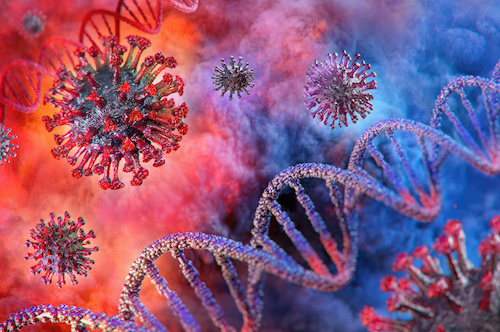Month: September 2021
Lancet: Early COVID-19 Symptoms Differ Among Age Groups and Genders
Age and gender matter when it comes to the early COVID-19 symptoms, according to new research from Lancet Digital Health. The differences are most notable between younger age groups (16-to-59 years) compared to older age groups (60-to-80 years and older). Also, men have different symptoms compared to women in theRead
Early Stage Curcumin Study Shows Promise for AD-Related Metabolic-Immune Dysfunction
As researchers explore the benefits of curcumin, a recent mice study raises additional promise for metabolic dysfunction and immune disorders related to Alzheimer’s disease (AD). Because Alzheimer’s disease is the cause of around two-thirds of dementia cases, worldwide, most of the research focus has been on progressive deficit in memoryRead
DISCOVERY: Researchers Find Phospholipase A2 group IIA Enzyme Drives COVID-19 Mortality
University of Arizona researchers found what may be the key molecular mechanism responsible for COVID-19 mortality, it is the phospholipase A2 group IIA, or sPLA2-IIA enzyme. The sPLA2-IIA enzyme is known to be responsible for severe inflammation, researchers now believe it could be a key mechanism driving COVID-19 severity andRead
Neutralization of Inflammation by Inhibiting In vitro and In vivo Secretory Phospholipase A2 by Ethanol Extract of Boerhaavia diffusa L.
Background: Inflammation is a normal and necessary prerequisite to healing of the injured tissues. Inflammation contributes to all disease process including immunity, vascular pathology, trauma, sepsis, chemical, and metabolic injuries. The secretory phospholipase A2 (sPLA2) is a key enzyme in the production of pro-inflammatory mediators in chronic inflammatory disorders suchRead
Inhibition of Group IIA Secretory Phospholipase A2 and its Inflammatory Reactions in Mice by Ethanolic Extract of Andrographis paniculata, a Well-known Medicinal Food
ABSTRACT/ Andrographis paniculata Nees is an important medicinal plant found in the tropical regions of the world, which has been traditionally used in Indian and Chinese medicinal systems. It is also used as medicinal food. A. paniculata is found to exhibit anti-inflammatory activities; however, its inhibitory potential on inflammatory GroupRead
Bladder Organoids & Bladder-on-a-Chip Reveal Urinary Tract Infection Pathogensis
Scientists have developed two complementary bladder models to study urinary tract infection (UTIs) caused by E. coli: bladder organoids and a bladder-on-a- chip. The two studies reveal how bacteria invade the bladder, and how they evade the immune system and resist antibiotics. The studies, published in the journals Cell ReportsRead










